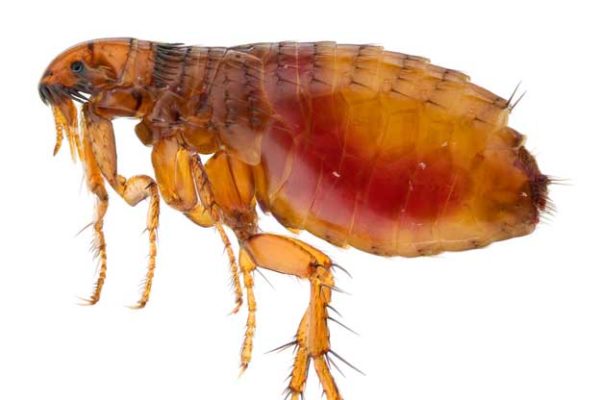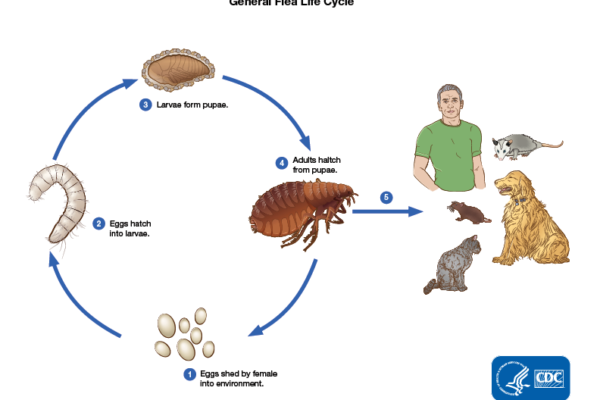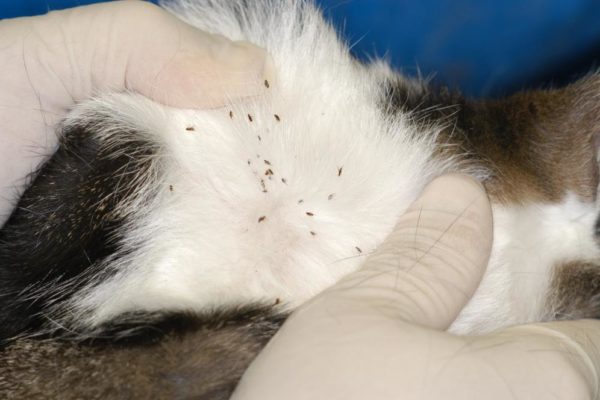
Fleas can cause problems for pets ranging from minor to life-threatening. Not only can these parasites cause severe itching, irritation, and allergies, but they can also transmit tapeworms and diseases. Fleas can infest dogs, cats, ferrets, mice, and rats. And fleas don’t just stay on pets; they can bite people, too. For more information, contact us or see the flea article in the Pet Health Library on our site.
Please remember – even dogs who only walk on leash can get fleas. Even indoor house cats can get fleas.
***WARNING: many flea preventatives sold in pet stores are classified as pesticides NOT veterinary approved pharmaceutical drugs. This means they go through less vigorous safety studies and are considerably more toxic to pets and people. Any cost savings are not worth the risk to your pet. The veterinary-approved products we use are BOTH safer and more effective.***
***EXTRA WARNING: many over the counter flea and tick medications sold in pet stores, departments stores, or country stores are TOXIC TO CATS. Despite warning labels on these products we treat cats who get seizures and tremors from these products every year. Please do not use products that contain pyrethrins, permethrin, or organophosphates. ZODIAC is one of the most common products people mistakingly use on cats.***
You don’t want these blood-sucking parasites on your pet or in your home. We can help keep them away or help you get rid of them if they’ve already found their way inside. Call us at (519) 472-3770 to find out how to eliminate and control fleas or to start your pet on a SAFE, veterinary-approved preventive today.















